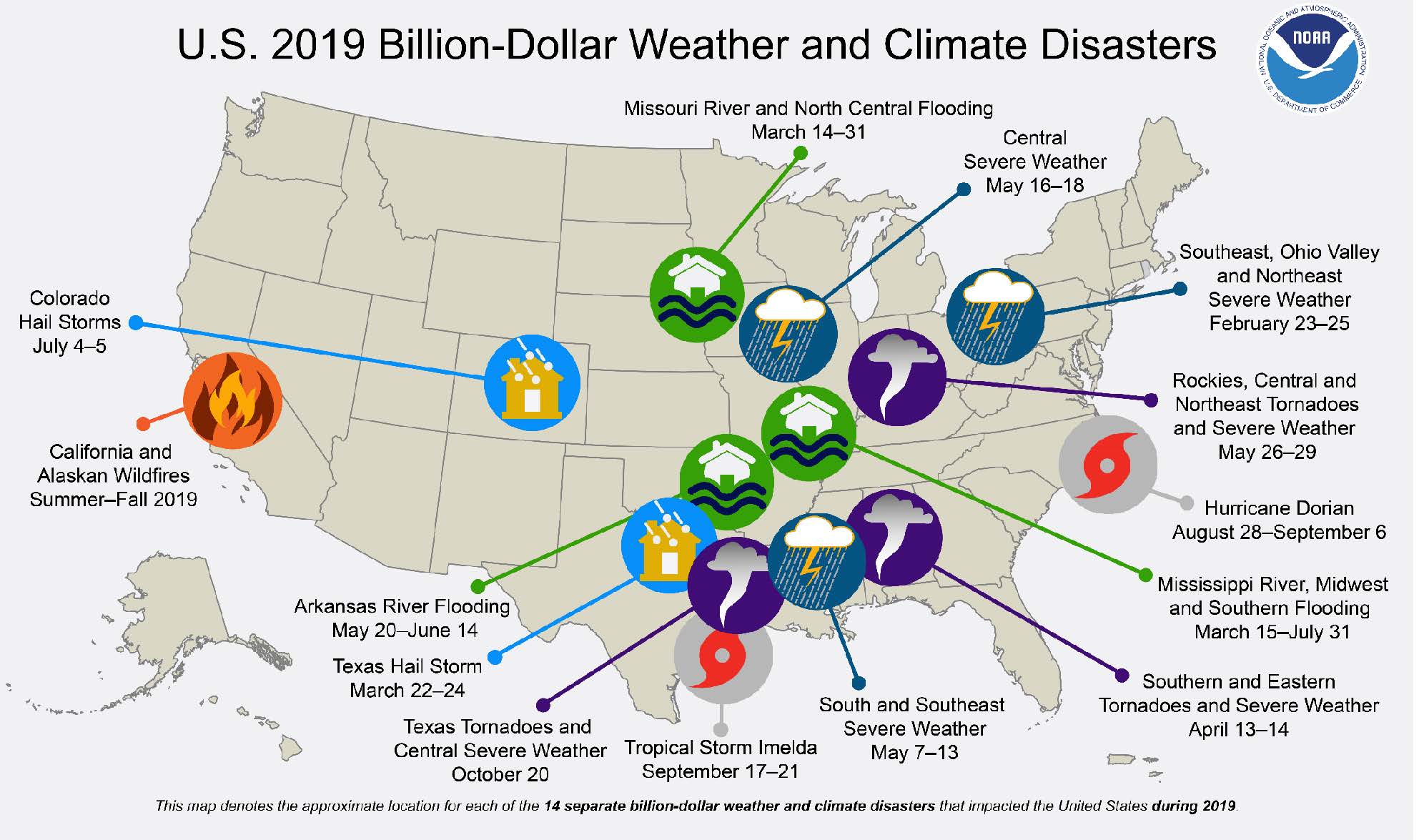 October 2020 – Last year, the U.S. was affected by 14 separate billion-dollar weather and climate disasters. We are currently in the midst of the 2020 hurricane season, so this year’s numbers are not yet in.
October 2020 – Last year, the U.S. was affected by 14 separate billion-dollar weather and climate disasters. We are currently in the midst of the 2020 hurricane season, so this year’s numbers are not yet in.
Allison Yeh, AICP, LEED GA, Executive Planner, was invited to participate on a panel for the Federal Highway Administration (FHWA) Puerto Rico and US Virgin Island Resilience and Planning Peer Exchange Webinar Series. The event was part of a series of 10 webinars held October 12 – 26, 2020, addressing transportation resilience: including transportation planning, coastal/riverine flooding, and the impact of earthquakes on structures. Speakers included public and private sector planners and technical experts from around the country. The goal of the peer exchange was to share experiences on policy development, technical tools, and successes and challenges in programing and implementing transportation resiliency into the planning process.
Allison shared the Hillsborough MPO’s experience on Resilient Tampa Bay Transportation Pilot completed in June this year. The project found that 20% of major roads in our county could be washed out in a Category 3 storm, factoring in the sea level rise predicted for the next two decades. Pinellas is even more vulnerable, at 57%. The study recommended that in Hillsborough we should increase our investment in stormwater projects by about half (approximately $22 million per year) and should nearly double our investment in road resurfacing, hardening pavement and sub-base and preserving shorelines (~$72 million per year). If crucial roads are impassible after a severe storm, the impact to our economic recovery reaches a break-even point, compared to the cost of these improvements, at about 2 ½ weeks.
